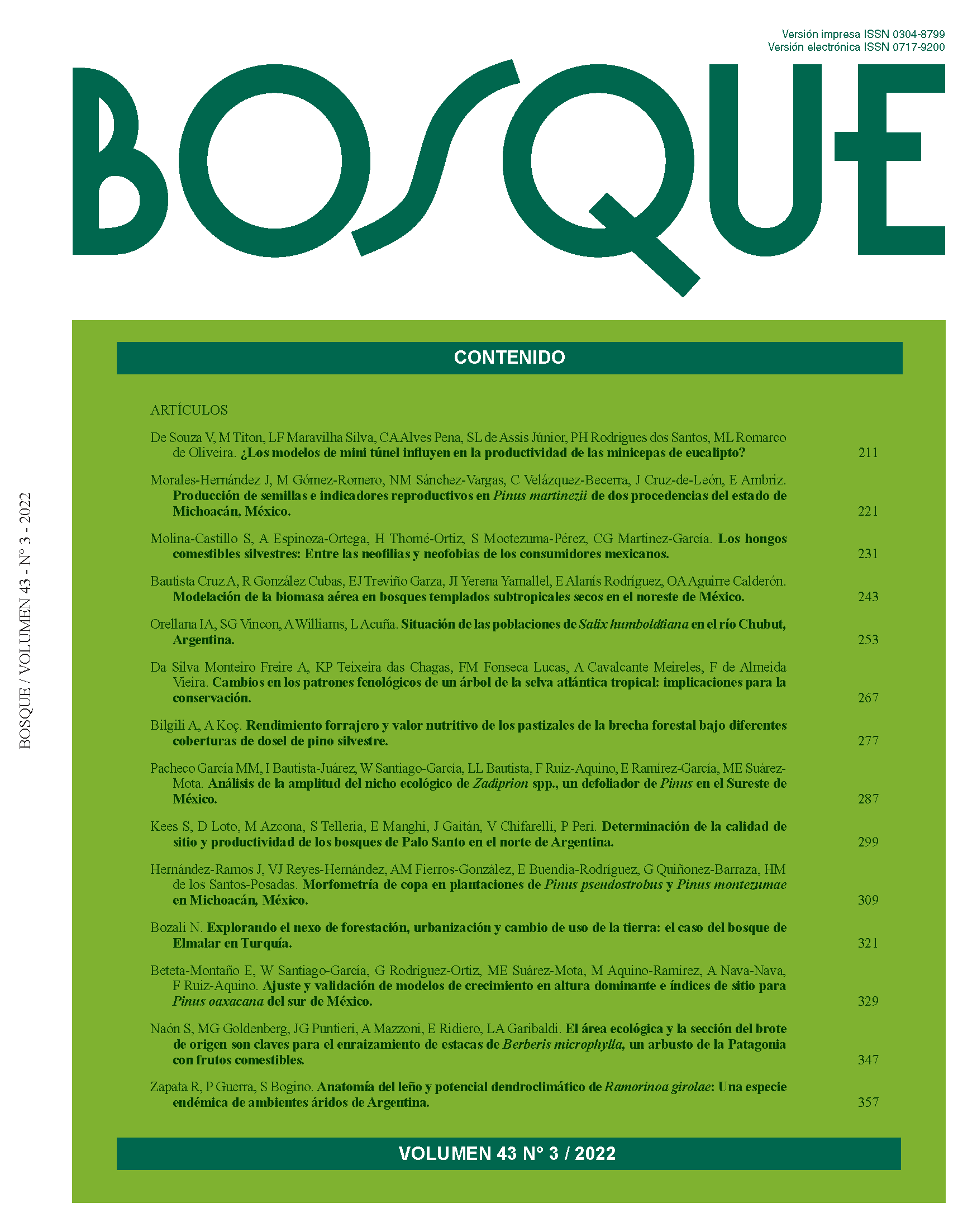Crown morphometry in plantations of Pinus pseudostrobus and Pinus montezumae in Michoacán, Mexico
Main Article Content
Abstract
The dimensions and morphological characteristics of a tree canopy are indicators of photosynthetic capacity and are influenced by competition. Morphometric indices (MI) and correlations between dasometric variables can be used in forest management. The objectives of this study were to calculate and correlate some MI, and to model the proportional crown relationship (pc %) as a function of the normal diameter (dn), using mixed effects models (MEM) in forest plantations of Pinus pseudostrobus and P. montezumae. 11 indices and morphometric values were estimated using information regarding dn, crown projection diameter, clean stem height and total height (A). In addition, a MEM was produced using the classification variables of altitude, exposure and slope, in order to estimate the pc %. The slenderness index (A/dn) and the crown area ratio were 0.65 m cm-1 and 31.19 m2 for P. pseudostrobus, and 0.55 m cm-1 and 21.85 m2 in P. montezumae, while the dimension of the crown diameter was 25 and 31 times the dn for these two species. The best conditions for development of P. pseudotrobus occurred between the elevation intervals of 2,750 - 2,950 m a.s.l., while for P. montezumae the west and southwest exposures showed higher values. MI and MEM adjustment offer a valuable tool to calculate essential parameters of forest management and establishment of forest plantations for these two species.

